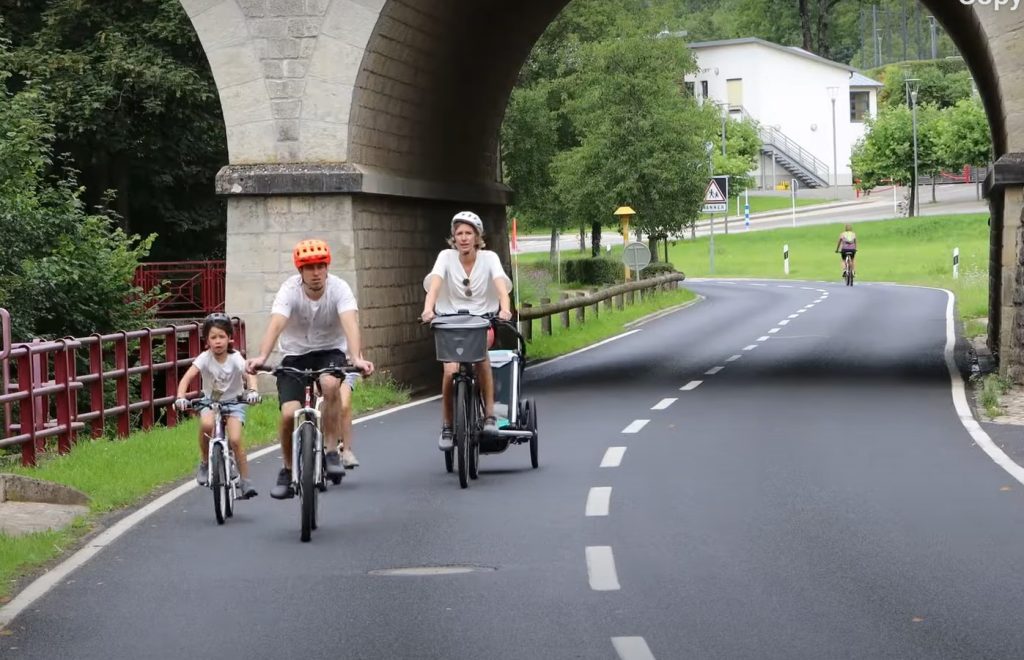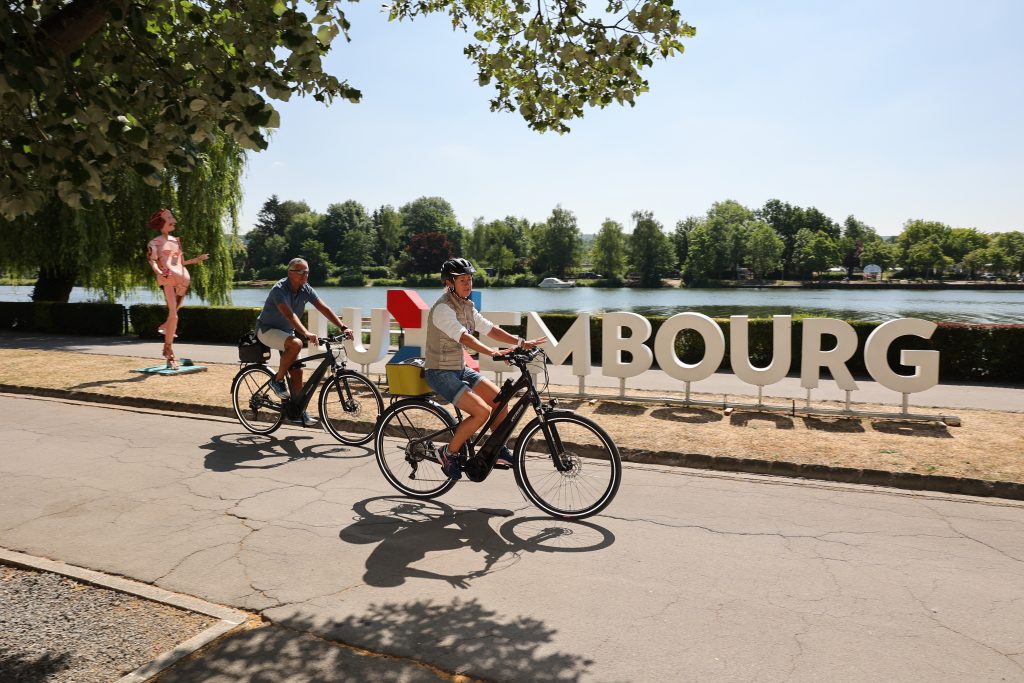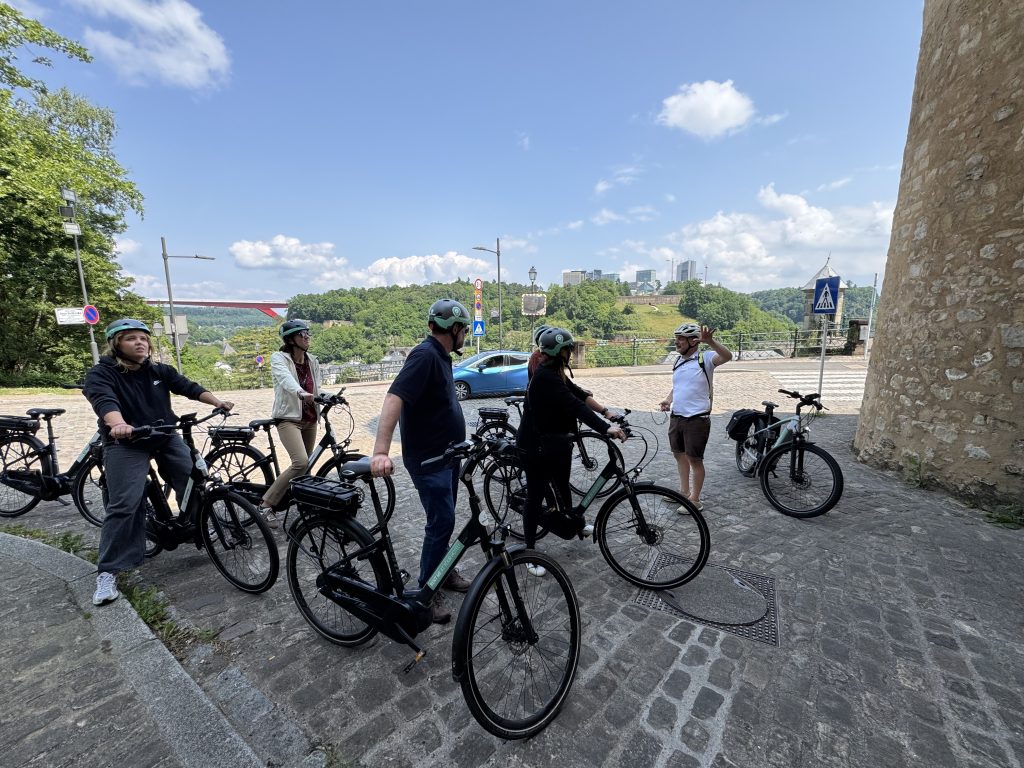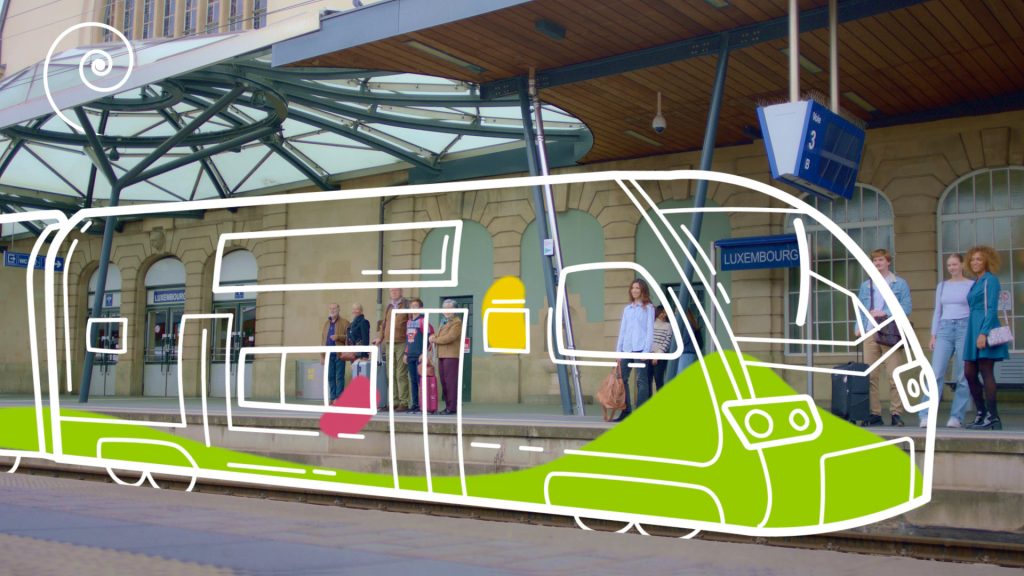
How to travel abroad by bike… and by train?

Combining train and bike together is attracting more and more customers of the CFL and other rail companies. In return, the CFL are increasing their efforts to welcome bikes on board their trains. But travelling in Belgium, France or Germany on a two-wheeler requires a certain amount of preparation and also following a few rules. Here’s how.
Ready to get on your bike and explore neighbouring regions or the Belgian coastline? Cycling has been making a strong comeback in recent years, driven in particular by new electric models that provide welcome assistance. This is an underlying trend in favour of active mobility – which is good for your health – and goes perfectly with the train as a modern and sustainable means of transport.
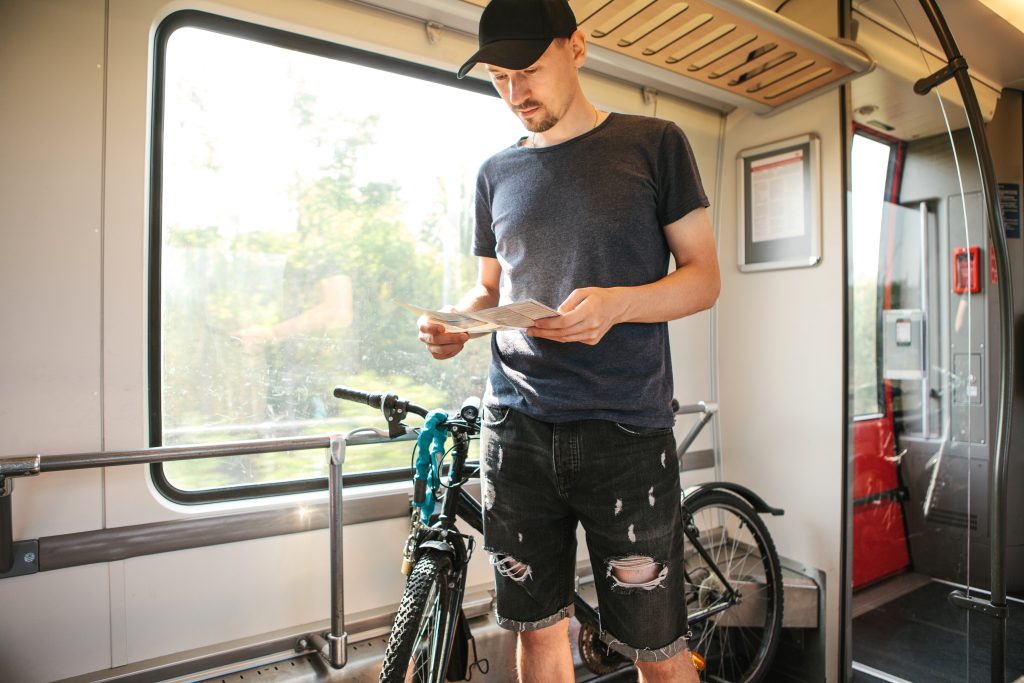
Heading to Germany
Although certain conditions depend on individual federal States in Germany, the general rate for taking a bike on board a regional train in Germany is 6.5 euros in addition to the price of the train ticket. The fare is valid for one day, without the possibility of reserving a seat, as priority is given to passenger seats. On long-distance trains, you will be charged €7.5 to reserve a seat for your bike (vertical or standing, depending on the type of train).
If you want to visit Luxembourg's neighbouring Saarland and Rhineland-Palatinate, transporting your bike by train is free after 9 a.m. on weekdays and during weekends.
More information on the DB website
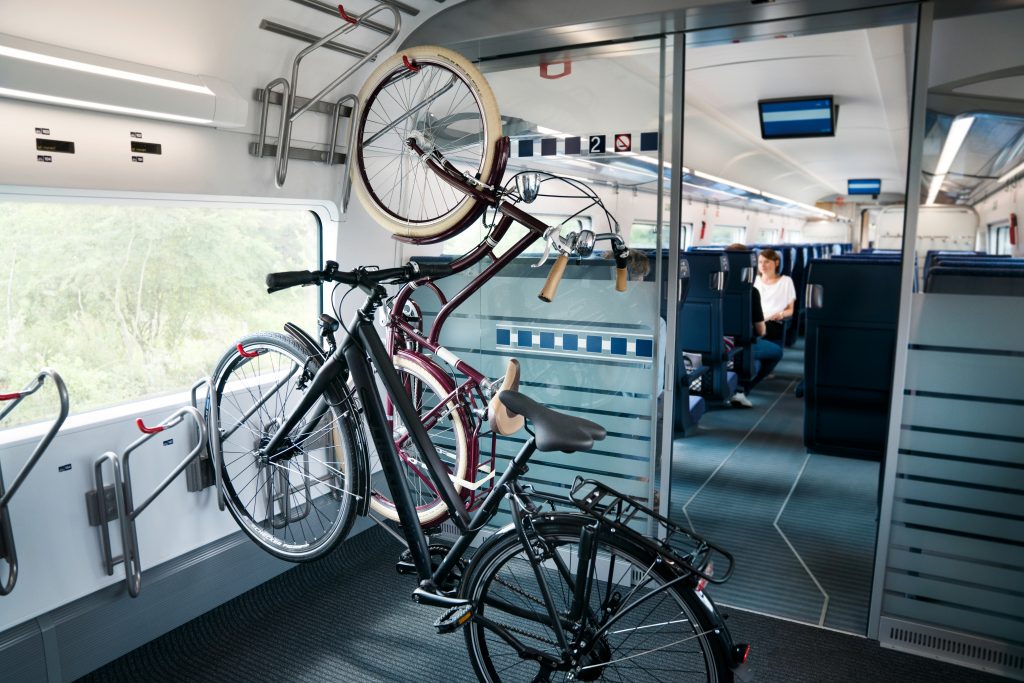
Depending on the type of train in Germany, bicycles are either hung up or parked upright (Picture: DB)
Cycling in France
Would you like to (re)discover the French capital by bike? The TGVs departing from Luxembourg to Paris do not have spaces for bicycles, nor do those to the south of France. The best thing to do is rent a bike where you’re staying or ask the SNCF about the availability of cycle spaces on TGV trains departing from Metz. If you get a positive reply, you will be charged €10 for a guaranteed reservation.
A folding bicycle is considered to be luggage on regional trains (TER) and TGVs (two pieces of luggage per person permitted). When folded, it can be placed next to you on TER trains and in the baggage area of TGV trains, labelled. If the bike can be dismantled and placed in a special bag (130/90 cm), it is also considered as baggage.
As for regional trains (TER), although each region can lay down specific rules, free travel applies in most cases. So it’s possible to explore the Grand Est region without paying any supplement for your bike (although there is no guarantee that seats will be available).
More information on the SNCF Connect website
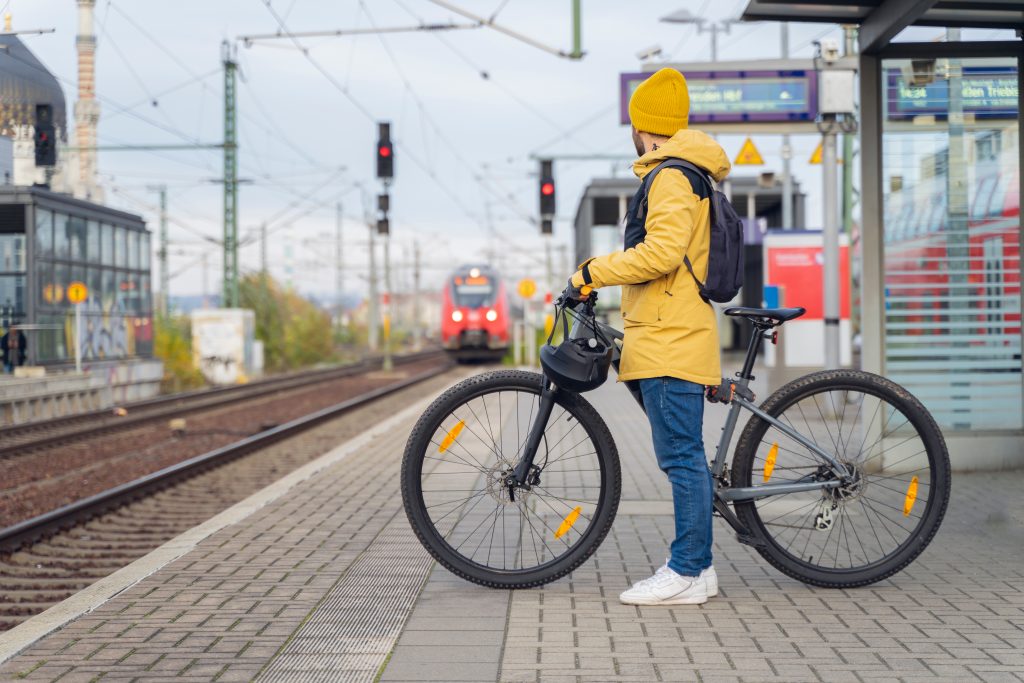
Towards the Belgian coast
SNCB is offering a four-euro ticket to take your bike to any destination in Belgium, with no guarantee of a seat or reservation. The IC (InterCity) trains to Brussels leave from Luxembourg, so customers travelling with their bikes have the opportunity to be the first to board the bike compartment.
More information on the SNCB website
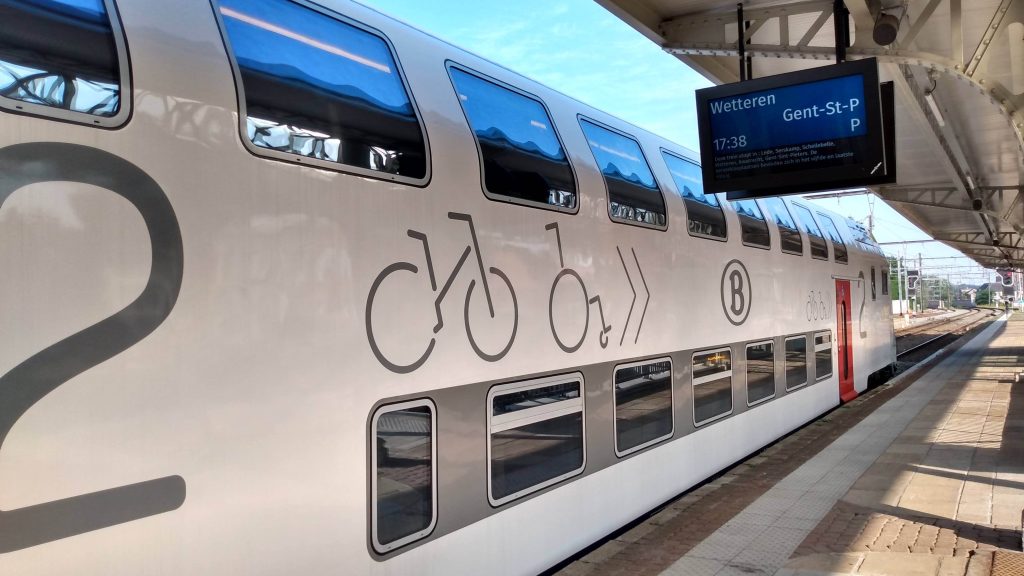
Elsewhere in Europe
Would you like to travel by bike to other regions or countries in Europe? There are a number of specialised companies offering bicycles of all types to rent for your trip. If you really want to take your own bike with you, the CFL Welcome and Sales Centres (at Luxembourg and Belval-Université stations) will advise you on practical arrangements and can take care of booking and purchasing specific tickets. The CFL CallCenter staff are also available by telephone (+352 2489 2489) 7 days a week between 6.15 a.m. and 9.30 p.m..
Bike & Bus: a combination to avoid Transporting normal bicycles on buses (regular lines and replacement buses) remains complicated, if not forbidden. As for folding bikes, they are considered as luggage when folded and can be carried close to the passenger.
And in Luxembourg?
Cycling is part of the range of mobility solutions that the CFL offers their customers, especially since the launch of the cycling strategy in 2023. For customers who want to combine cycling and train travel, the more than 70 bikeboxes located throughout the country – mainly near CFL stations and stops – offer the advantage of secure parking. At the same time, you can avoid the stress of boarding a train with your bike during rush hour.
To find out more about bikeboxes, click here
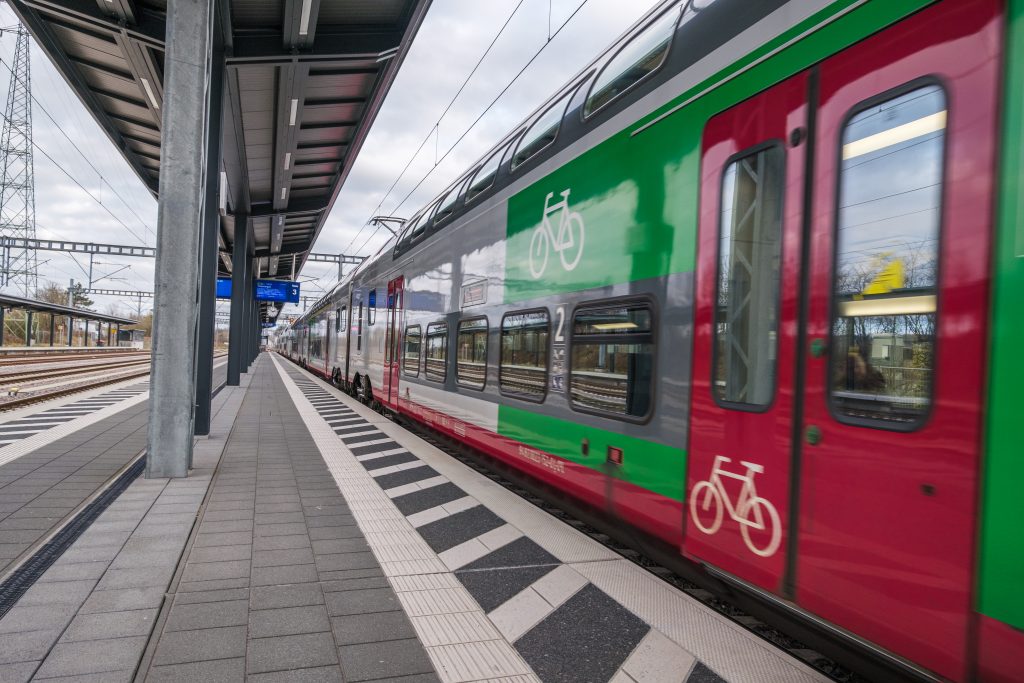
The CFL recommend avoiding rush hour when boarding a train with your bike or other micromobility device such as a scooter. For groups of cyclists, the best thing to do is to divide them up between the train’s bicycle compartments (often at either end) and, here again, avoid peak times.

